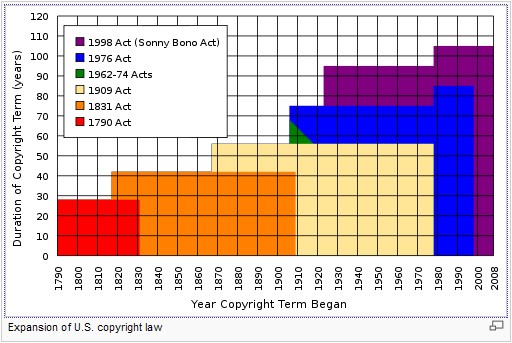I finally finished reading Adrian Johns’ Piracy: The Intellectual Property Wars from Gutenberg to Gates last month. It’s long — over 500 pages in length — but well worth the effort. Rather than write a formal book review at this time, let me say that it can be briefly summed it up with the words “greed” and “monopolies.” Mr. Johns coins the term “Intellectual Property Defense Industry,” which has emerged and developed over the past 40+ years to confront so-called piracy. It is now a coherent, global, high-technology enterprise. In addition, it now has the backing of the US Government (Intellectual Property Enforcement Coordinator, or “Copyright Czar”) and Dept of Homeland Security’s ICE (Immigration & Custom Enforcement). Mr. Johns states that we appear to be entering a “crisis” stage of copyright and that we’re ripe for a transformation. He states in the last chapter:
“We may therefore be about to experience a profound shift in the relation between creativity and commerce. It will be the most radical revolution in intellectual property since the mid-eighteenth century. It may even represent the end of intellectual property itself.”
I certainly hope he’s right!
If you’re not yet ready to tackle a 500+ page book on copyright, I strongly recommend you read Rick Falkvinge’s seven-part series on “The History of Copyright.” It’s short, entertaining, enlightening and has been declared as ‘reference material.’ Before reading the history, be sure to read the first link in which Rick defines what copyright is (and is not):
Copyright is not a property right. It is a limitation of property rights. Copyright is a government-sanctioned private monopoly that limits what people may do with things they have legitimately bought.
Here are the links:
7-Part History of Copyright series (by Rick Falkvinge):
- Part 1: Black Death
- Part 2: Bloody Mary
- Part 3: The Monopoly Dies And Rises
- Part 4: The US and Libraries
- Part 5: Moral Rights
- Part 6: Hijacked By Record Industry
- Part 7: Hijacked by Pfizer
And lastly, here’s a couple more excellent copyright articles by Rick Falkvinge:
- Kill Copyright, Create Jobs
- Radical Copyright Reform Only Chance For The Copyright Monopoly To Survive At All
- Streaming is the Copyright Industrys Approaching Train at the End of the Tunnel
Dat’s all for now…
.jpg) In a recent
In a recent 